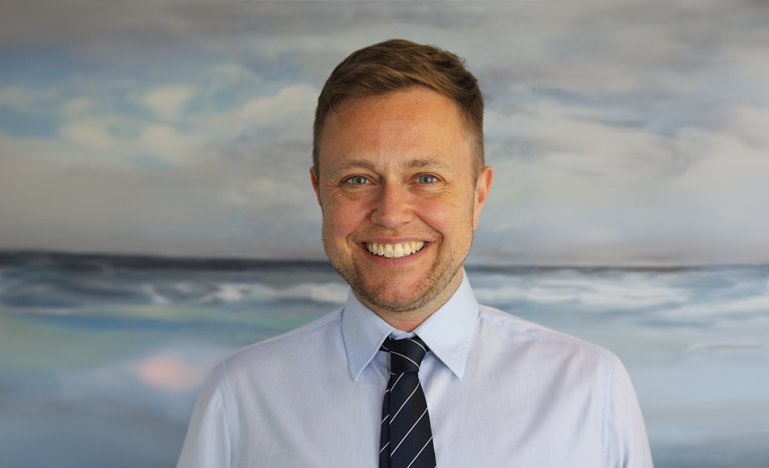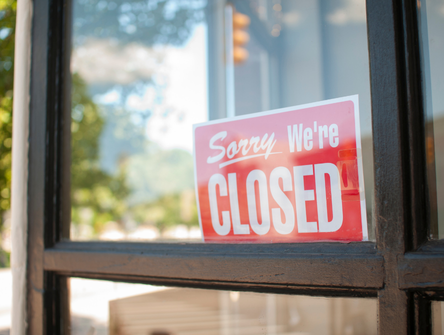Lawyer celebrated for leading the charge against anti-trans policies
Bennett Jensen is one of two winners of the 2024 Hero Award from the CBA’s Sexual and Gender Diversity Alliance Section

When Bennett Jensen came out as trans almost 20 years ago, it was “a completely different world.”
He experienced first-hand what it feels like for society to communicate that there’s something wrong with you.
That’s changing, however.
“Now, when I'm meeting families and providers and experts, I realize just how known trans people are and how loved they are and how much support exists in Canadian society,” Jensen says.
Compassion and empathy for young trans people help drive his work as the legal director at Egale Canada, a leading advocacy organization for 2SLGBTQ+ people and issues.
Last year, Jensen relaunched Egale’s legal advocacy program and developed a new strategic vision for defending 2SLGBTQ+ rights in Canada. This has included intervening in cases ranging from defamation actions on transphobic speech to challenging provincial pronoun policies targeting trans students.
Jensen’s work fighting for justice for 2SLGBTQ+ people hasn’t gone unnoticed by his peers, who recently awarded him the 2024 Hero Award from the CBA’s Sexual and Gender Diversity Alliance Section. It recognizes 2SLGBTQ+ lawyers, judges, and academics who have worked to advance the communities’ causes within the legal profession.
He shares the award with Robert Leckey, dean of McGill’s faculty of law, while lawyer Claire Hunter received the 2024 Ally Award.
In their letter nominating Jensen, Pam Hrick, executive director of the Women’s Legal Education and Action Fund (LEAF), and Nikki Gershbain, founder and CEO of IDEA Consulting, described him as a role model for legal professionals.
“There is no doubt that Bennett embodies the very highest standards of professional and legal excellence within our profession in advancing the cause of equality for 2SLGBTQI+ people, and in particular vulnerable trans youth,” they wrote.
“(He) is quite literally on the front lines of what has become a fight for queer and trans lives in Canada.”
However, they said what sets him apart and makes him a worthy winner of this year’s award is “the incredible compassion he shows for his clients, despite the emotional toll on his own life; and second, his selflessness and modesty in advancing these values.
“He is committed to ensuring the trans youth he works with know that he is on their side and using every legal, social, and political tool at his disposal to beat back any attempts to deny their humanity.”
Jensen was “shocked and humbled” by the recognition, and grateful to the many other legal professionals he works with on emotionally challenging cases.
“I’m very lucky to not be doing it on my own,” he says.
“When it becomes hard is when I let myself lean into the pain that is being caused to trans people. It can be very painful and very hard to know that’s happening, but I feel privileged to be able to spend everyday at my job fighting back against that.”
With a wave of anti-trans legislation passing in the United States in recent years and increased threats against 2SLGBTQ+ people in Canada as well, leaders at Egale realized that advocating for their rights would require turning to the courts “in a way that hadn’t been necessary in 20 years” — ever since marriage equality was achieved, Jensen says.
“The big shift is that we are now initiating precedent-setting litigation and dealing incredible novel notions of law for our country.”
In the past year under Jensen’s direction, Egale has intervened in cases that concern the ability of regulators to issue remedial orders to professionals engaging in transphobic speech (Peterson v. College of Psychologists of Ontario), ensuring appropriate access to gender-affirming care for non-binary individuals (Ontario Health Insurance Plan v. K.S.), and whether the Charter applies to school boards (York Region District School Board v. Elementary Teachers' Federation of Ontario).
“It’s devastating that it’s been necessary, but it’s incredible to see how much we’ve been able to do in one short year,” Jensen says.
Several more cases are in progress. Jensen is co-counsel on the UR Pride Centre for Sexuality and Gender Diversity’s challenge of Saskatchewan’s recently passed Bill 137, which requires parental consent before a child under 16 can use a different pronoun or name to match their gender identity at school.
He is also co-counsel on LEAF’s challenge of a similar policy in New Brunswick, which also requires that schools out trans students to their parents.
In both cases, Jensen and his colleagues argue that the policies are discriminatory.
“I think it’s important that people realize how much these policies affect the well-being of trans people,” he says.
“They are telling society that trans young people aren’t okay, that it’s not an acceptable identity, and that there should be serious forms of oversights or limitations on the ability of trans people to exist. That is deeply, deeply harmful psychologically and emotionally to these young people.”
Jensen is also gearing up for a potential legal battle with the Alberta government.
Earlier this year, Alberta Premier Danielle Smith announced a series of policy initiatives that would limit the rights of trans youths, Jensen says, including their right to an inclusive and safe education, to access medical care and to participate in sports and extracurricular activities, among other things.
“The legislation that Premier Smith is proposing is clearly unconstitutional,” Jensen says.
“We’re dealing with some of the most cutting-edge legal questions that affect the nation, not just 2SLGBTQ+ communities. (That includes) the appropriate use of the notwithstanding clause, the appropriate role of the courts once it has been used, and the meaning of various Charter rights as they extend to gender diverse groups.”
Jensen says Canadians should be “inherently concerned” about governments’ use of the clause, which Saskatchewan Premier Scott Moe has said he will invoke to push Bill 137.
“The ways in which these provincial governments are pushing these policies are challenging some of the basic democratic principles that we hold so dear in our country,” Jensen says.
“We have governments arguing that once the notwithstanding clause is used, courts have no role at all in fulfilling their function, which is determining the constitutionality of legislation.”
However, he says it’s been “powerful” to see many Canadians voice their disapproval of these policies and meet other lawyers who want to join the fight against them.
“The most important reason that we have to fight back is that we believe that young people should be allowed to exist as they are and receive support from society.”


